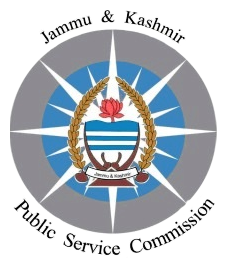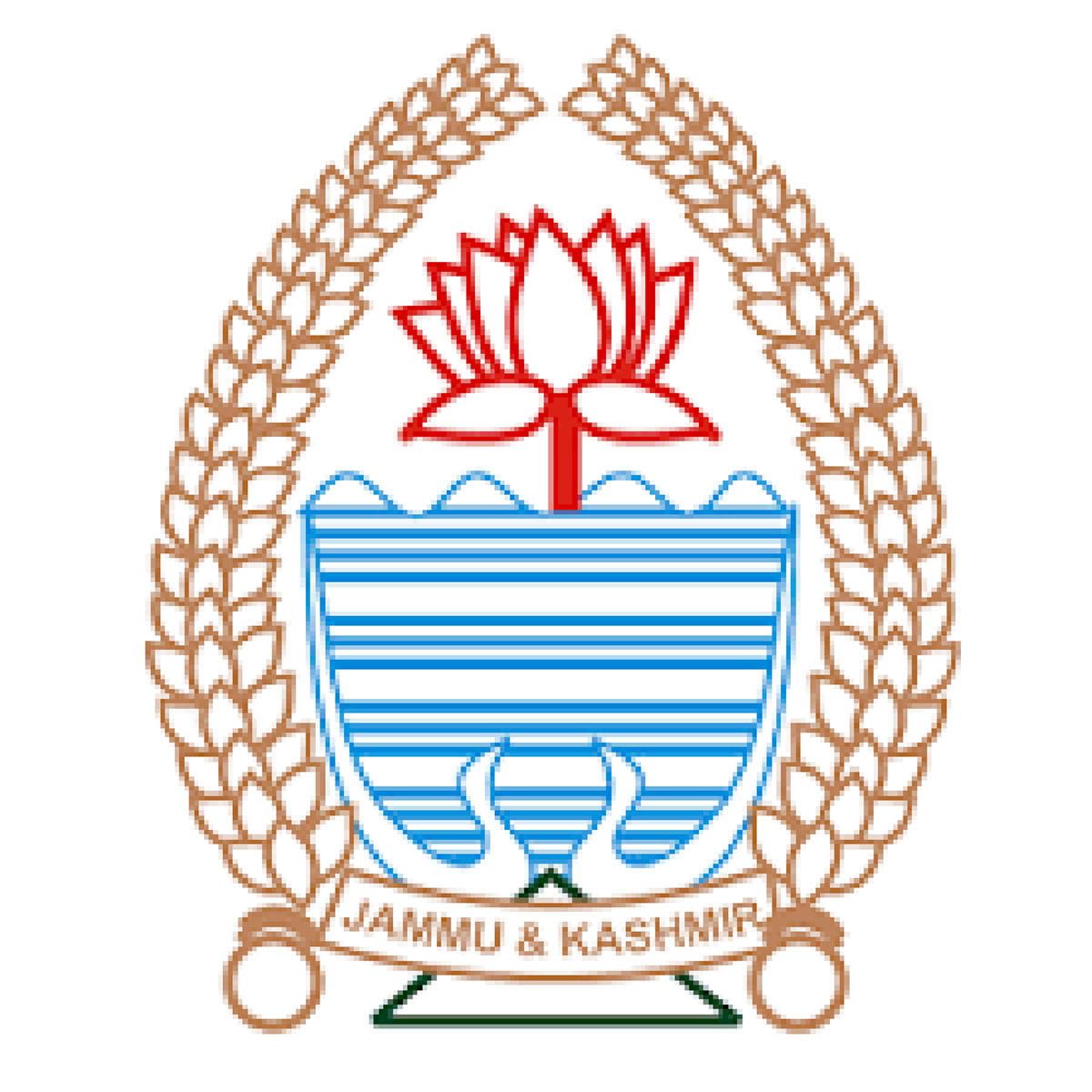So, in the UT of J&K, amidst the dipping temperature, the recently declared results (by JKPSC) of the Combined Competitive Examination (CCE) prelims 2021 aka JKAS /KAS have been warming up the temperatures for the aspirants. After this "very difficult" prelims paper, many anxious minds were unsure about their fate despite tremendous hard-work they had put in. As per initial trends, the cut-off seem to be around 60s for General Category, much lower than (already low) 77-82 predicted by me and my colleague Vivek. Anyways, heartiest congratulations to all those who qualified the prelims. You should start focusing on Mains Preparation full-throttle in case you couldn't do so after prelims till now, and naturally so.
For all those who unfortunately couldn't make it to the second stage, don't lose heart. It is definitely not the end of the world for you. I am saying this with full conviction as I have also faced similar situations in my journey. Take your time, until you feel normal again. Thereafter, sit back, relax, and reprioritize your options. If you really want to continue with this preparation, then re-strategize your preparation based on self-analysis of this attempt (or past attempts). Trust me, you will be best knowing where you faltered. You just need to analyze honestly.
Now, coming to the preparation strategy for Mains Exam (with a disclaimer that I don't guarantee that mine will be a fool-proof, works-for-all strategy. However, the following strategy is based on my own experience of 2 JKAS and 5 UPSC CSE attempts)
For the 8 papers that comprise of: 4 General Studies (GS) Papers, 1 Essay Paper, 2 papers of the subject that you opted for (Optional), and one English Language paper (qualifying nature), the detailed strategy is as under (What & How):
I) Some Common Points:
Study the syllabus religiously. Syllabus along with Past Years' Question Papers (UPSC+JKPSC) are 'the best guides' you will ever have. And I mean it! Carefully analyze the syllabus and PYQs and identify the prominent (important) themes that you find are asked repeatedly/frequently. Prepare them thoroughly (with a good blend of Static & Current content along with facts and figures). Make good (short) notes of them. They will help you in Essay paper as well (which I have elaborately discussed about later in this article ).
In addition to this, Revise & Revise the standard books and study material you have been referring to till now. Try sticking to the sources you have already read rather than succumbing to the temptation of reading new 'capsules' or 'compilations' except for Current Affairs or the leading Mains specific compilation of some good institute (like Vision Mains 365/Next IAS/Vajiram/Rau's/Shubhra Ranjan etc. (any one). I myself found Mains 365 very useful for me (an honest review).
A) General Studies:
- Standard sources, your own notes, PYQs, and test series of some good institute. (you need not subscribe a test series if you are not willing to, you can get the material free on their websites, or on google/from Photostat shops etc.) The whole idea is to devise a schedule/plan of preparation and ANSWER WRITING PRATICE and sticking to it till you write Mains.
- ANSWER WRITING PRACTICE is the most important part in this entire exercise. The more you practise, the more you will remember/understand, the more fine-tuned your answers will be, and the better prepared you will be. For this you should subscribe to a test series if you can afford ( or refer to the previous point in case you are not willing to). In any case, get hold of the PYQs and prepare them thoroughly, they give you a fair idea about what to focus on.
- FOR ETHICS: (Same strategy- Syllabus, PYQs, Test Series/Model Test Questions & Solutions, and standard sources- Lexicon/Class Notes or any other source you have been referring to till now).
- You will be writing 2 essays in 3 hours. So prepare accordingly. Since, you will also be studying for the GS elaborately, you don't need some 'out-of-box' content for essay. You will have sufficient knowledge about the topics/themes being asked.
- For the Philosophical essays, you can refer to an essay module by any good institute to get a fair idea about the approach and the content.
- Just be careful with few things while writing the essay: a) Understand the theme/topic thoroughly. Take time to make a choice about the topic; b) Don't deviate from the topic at any stage while writing essay; c) Better to prepare a rough sketch of the essay first; d) try to avoid flow-charts or diagrams in your essay unless it is extremely necessary or you are convinced about its appropriateness; e) similarly, avoid point format; f) Your subsequent paragraphs should be coherent (i.e, the next paragraph should be related to and seem to be a logical continuity of the previous para and so on).
- The Introduction; Body and Conclusion (you don't need to write them as headings) format is the universally accepted one. The Introduction should give a fair broader idea (an abstract) about the entire essay that you are about to write. The Body should be as elaborate as it can be with as much dimensions as you can incorporate (like Social, Technological, Economical, Political, Cultural, Environmental, Ethical etc.- again, you don't have to write them as headings!) An essay with broader dimensions is comparatively easier to write and generally more rewarding. The Conclusion should be a brief summary of the entire essay and should more often suggest a positive way forward. In terms of length of Intro, Body & Conclusion, try to keep it 20:60:20 percent respectively.
- Starting and/or concluding with good/catchy/relevant quotes is always a good idea but not at the cost of artificially trying to fit in a quote even if it doesn't seem to be. And also remember not to overdo the quote thing. It can at times be counter-productive.
- You will always understand (& most likely) perform better if you PRACTICE more.
- Standard Sources/books, Notes, Syllabus, PYQs, Answer Writing Practice, Model Test Papers/Solutions.
- Your answers should be a happy blend of Static & Current affairs. The more the examples, the more rewarding an answer tends to be.
- Try to incorporate POINTS, FLOWCHARTS, DIAGRAMS as much as possible in your answers. This is equally valid for GS as well (except essay). This way you can express more in less words and of-course also provide much needed visual appeal to your answer (I used to lack on this part and would pay the price for same).
- Paper is of qualifying nature, and no need to top in it !
- Refer to Previous Year Question Papers for getting better idea and prepare accordingly.
- If your English is weak, then you need to put a bit more effort for this paper.
- Having a written plan (schedule) for the day/week/month that you can follow helps a lot.
- Having ready-reference short notes prepared on the lines of themes/topics always helps.
- Practicing Answer Writing will be more rewarding than reading and revising a lot.
- Prepare with last 10 days to the examination in mind. You will not have the time to revise all the sources again in that time period. So do prepare concise short notes out of your lengthy notes/books (you will not be able to read those books/notebooks immediately before the exam)
- Carefully, adhere to the word limit as mentioned against a question. You can express more in lesser words in point form, using flow charts and diagrams etc.
- Introduction, Body and Conclusion is a universally accepted structure for answers.
- If not subscribing a Test Series, then try to write tests on your own within the 3 hr time period. Initially, you will not be able to complete, but later on, with practice, you will be. Better option is to divide (allot) time to questions.
- Last but not the least, Take good care of yourself. Your health is your responsibility. You cannot afford to lose time because of some illness. So follow a healthy routine. Eat healthy food, do exercise/meditation to keep yourself physically and mentally sound.


It's useful... Sir please do share if we should continue reading newspaper or not.. N if yes then till mains?
ReplyDeleteNewspaper should be continued ideally upto 1 month before the Mains examination. Even after wards, you need to scan the news (not invest lot of time on newspaper).
DeleteThank u so much
ReplyDeleteSir, any idea regarding the best anthropology books and material. Kindly provide
ReplyDeleteBrain tree notes, make short notes out of brain tree notes
DeleteSir If a person wants to give this exam next year from now how much time should one take to complete a particular subject
ReplyDeleteDepends upon person to person. The mantra should be: 'Until you are able to cover the syllabus, do some substantial answer writing practice'.
DeleteMoreover, Revision is a never ending process.
Thank you so much ❤️
ReplyDeletePleasure !
DeleteIs there any good coaching centre in Jammu?
ReplyDelete